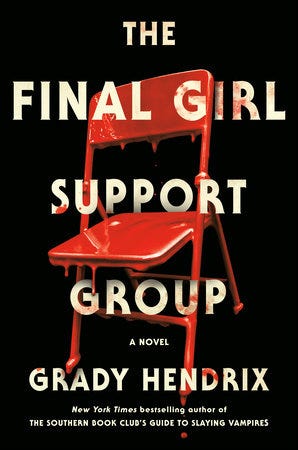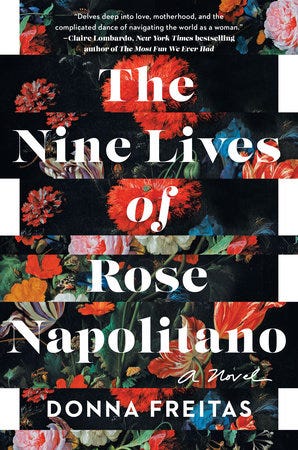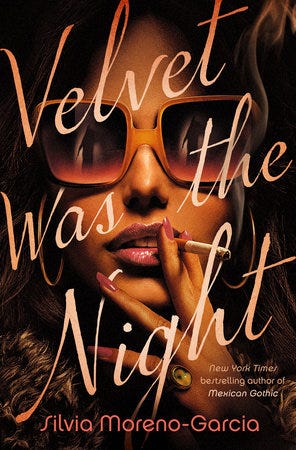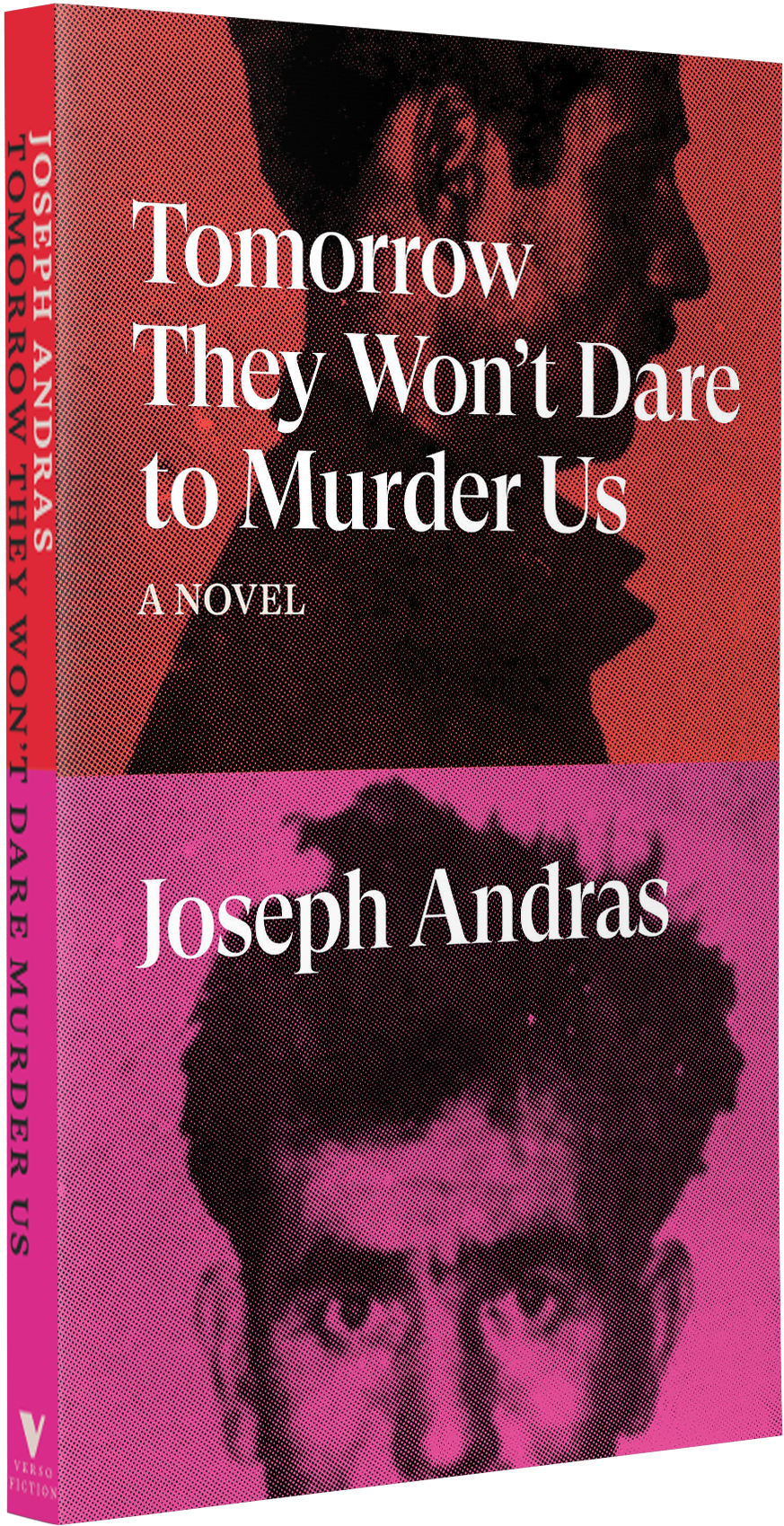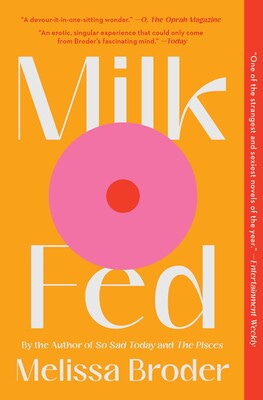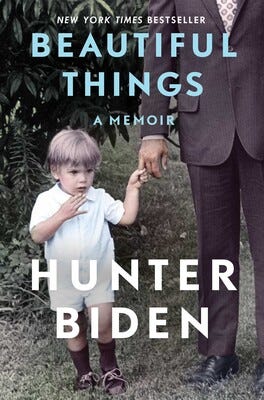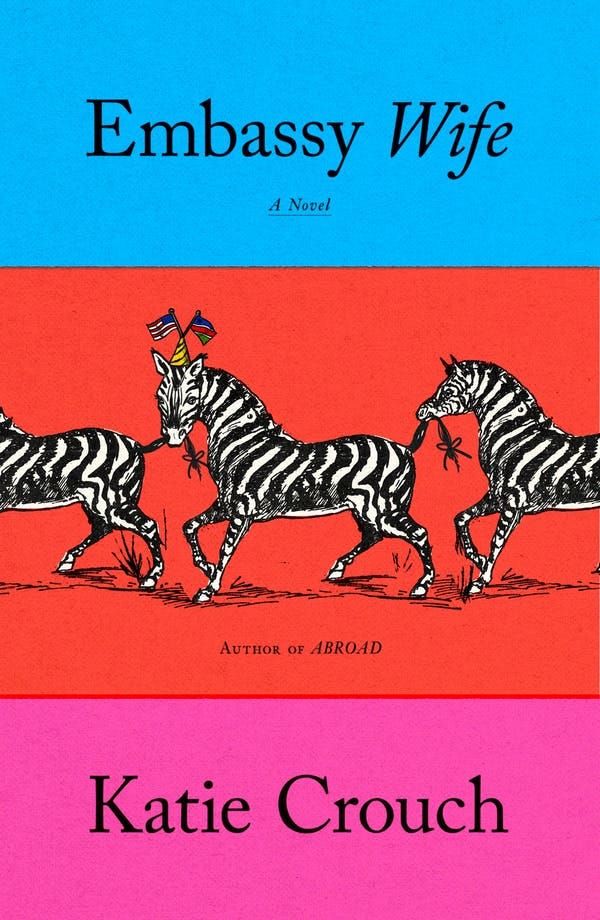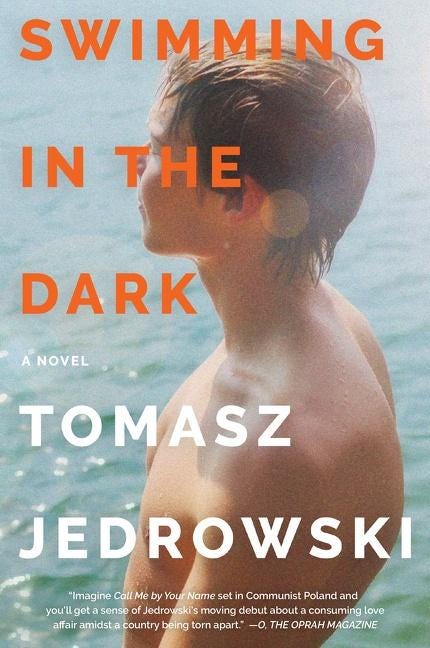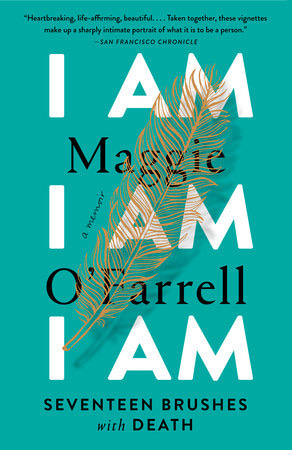November 2021 Reading Round-Up
The best and worst of my reading month
Welcome to the November 2021 Reading Round-Up. Each month, I write about the books I read and rank them from worst to best.
This month’s list includes mostly fiction, however, there is still a lot of diversity represented within the genre, from thrillers to mysteries, historical fiction to contemporary fiction, to books set around the world and in translation. While there were inevitably a few duds, 8 out of the 13 books were given a rating of either an 8 or a 9, with one earning a 10. Stay tuned for my forthcoming posts on the best books of 2021.
13. The Final Girl Support Group - Grady Hendrix
Fiction/Thriller, 352 pages
In horror movies, the “final girl” is the last victim standing in a massacre. These girls, who are rarely the protagonists, are normally portrayed as helpless characters caught in the wrong place at the wrong time and are only able to survive out of sheer luck. In The Final Girl Support Group, Hendrix attempts to hone in on these often overlooked characters by writing a story about their lives in the years following their trauma. In the opening scene of the book a support group for a handful of these “final girls” (now all women) is meeting in Los Angeles. One of the support group members, Lynette, lives an extremely paranoid life, convinced that someone is going to try to kill her and the other final girls like her. This is apparently not a wholly unlikely fear, as Hendrix draws attention to different online message boards and forums populated by horror fanatics who are offended by the idea that the survivors of these fetishized massacres are women with no extraordinary characteristics. This fear comes true when the members of the support group are systematically targeted, leaving Lynette to figure out who is after them before they are all killed.
After listening to an interview with the author on NPR around Halloween about common tropes in horror and Hendrix’s desire to write something outside of the typical confines of the genre, I figured the book was worth checking out even if it was not in my comfort zone. I think that if you are a fan of horror movies and have some knowledge about a typical horror plot, then you will enjoy this book. Otherwise, it contains gratuitous violence that at times is oddly glorified by an author trying to place his book within a genre that seems to profits from others’ trauma and tragedy.
Rating: 6/10
12. The Nine Lives of Rose Napolitano - Donna Freitas
Contemporary Fiction, 384 pages
Rose Napolitano is a young sociology professor who has never wanted to have children even though her husband does. The book opens on a scene of the couple fighting over Rose’s decision not to take her prenatal vitamins, ultimately leading to their divorce. In the next chapter, a new version of Rose’s life, the couple fights over the prenatal vitamins but Rose agrees to take them, setting the trajectory of her life on a slightly different path. In the next version of Rose’s life, Rose refuses to take the pills and her husband purports to be okay with that. Each version of Rose’s nine lives begins with the same scene but varies slightly along the way, setting the stage for a plot that should have been creative and intriguing. Instead, what follows are nine relatively similar versions of Rose’s life all centered around a plot that becomes rapidly less interesting as the book progresses. In addition, because of how similar each version of her life was, I found myself confused with which Rose I was reading about and remembering the events that made a version distinctive. I think it would have been more effective for Freitas to have focused on three or four main divergences in the centrality of Rose’s life and then used the rest of the novel to develop those differences in a meaningful way.
Rating: 7/10
11. Every Vow You Break - Peter Swanson
Fiction/Thriller/Mystery, 320 pages
During her bachelorette weekend in California, Abigail, the story’s protagonist, gets drunk and accidentally sleeps with a mysterious man known only as Scottie. Although she is intent on leaving the weekend behind her to focus on her upcoming marriage, Abigail keeps spotting Scottie, first in New York City at a cafe, then at her wedding, and then on her honeymoon at an exclusive and isolated island resort off the coast of Maine. Alarmed, Abigail does not know what to do. Should she tell her husband Bruce and admit that she was unfaithful? Or does she hope that Scottie goes away? At the same time that she is grappling with her choices she begins to notice strange things about the resort, like the fact that there are no other women present except for one woman with a strikingly similar story to her own. While the writing in this book is not the finest, the point is the plot, which delivers twists at the right intervals. The ending dragged on for a bit too long, but overall Swanson creates what he set out to achieve.
Rating: 7.5/10
10. Velvet Was the Night - Silvia Moreno-Garcia
Historical Fiction/Mystery, 304 pages
The 1970s in Mexico City was a time of unrest. There were frequent student protests, discontent with the government, and a fragmented intelligence apparatus paranoid about communists agitating for revolution. Within this context sit the book’s protagonists: Maite, a politically disinterested secretary, and Elvis, a member of the Hawks, an unofficial arm of the government tasked with squashing dissidents and activists. The book begins when Maite’s neighbor Leonora asks her to look after her cat while she goes away. When Leonora does not return, Maite gets sucked into the mystery of finding her and quickly discovers that because of Leonora’s political activities, many other people are trying to find her as well. In particular, Leonora is believed to be in posessison of valuable photographs that would have drawn attention to state-sanctioned violence. As a result, Elvis and the Hawks are brought in, creating a race for who can find Leonora first and avoid getting hurt along the way.
I know very little about Mexican history, particularly the history of the student movements and social unrest of the 1970s. I thought that Moreno-Garcia did an excellent job weaving together her plot with the political environment of Mexico City at the time. My biggest critique was the limited excitement of the story’s development. While some of the discoveries were interesting, I found myself bored at times as the story unfolded around Maite while she stood basically in the same place.
Rating: 7.5/10
9. Tomorrow They Won’t Dare to Murder Us - Joseph Andras
Historical Fiction (in translation), 144 pages
Tomorrow They Won’t Dare to Murder Us is based on the true story of the life of Fernand Iveton, a young revolutionary in Algeria who made headlines in the 1950s after planting a bomb at a factory on behalf of the Algerian resistance. The bomb was timed specifically to go off after the factory was closed in order to maximize physical damage and prevent any deaths. Before the bomb could go off, however, the French authorities foil the plot and Fernand is arrested, brutally tortured, and sentenced to death by guillotine after a one day trial. Between the announcement of his sentence and its execution, there were a series of appeals and pleas for pardons not only because the bomb did no damage, but also because Fernand was a “pied-noir,” the French term for a settler colonist - a white European whose birthplace is Algeria. In addition, Fernand’s wife was a member of the French Resistance during World War II, complicating the public’s perception of Algerian guerrillas and their cause. The book becomes fiction through Fernand and his wife’s detailed inner monologues and observations of their situation. My only critique of this slim book was how fluidly the author switched perspectives and jumped between time, rarely using new chapters or double spacing on the page to mark the shift, and therefore leaving me momentarily confused about what was happening. Otherwise, I thoroughly enjoyed reading a fictionalized account of an individual’s experience, especially someone as complicated and sympathetic as Fernand, on a subject that I had previously only ever read about in history classes in college.
Rating: 8/10
8. Hell of a Book - Jason Mott
Contemporary Fiction, 336 pages
Hell of a Book, this year’s National Book Award Winner, delivers a layered exploration of police violence and racism in America. There are two protagonists in this book: a best-selling author with an active imagination on a cross-country book tour and a boy named Soot, a young Black boy from the recent past in rural America. While the author tours the country, news of yet another police shooting of an unarmed Black teenager ignites protests and all anyone in the author’s audience wants to know are his opinions. Struggling with finding an impossible answer to the country’s racial reckoning as well as coming to terms with his recent success, the author invents an imaginary friend named The Kid who follows him around as a type of shadow and confidant. As the book progresses and the lives of the author and Soot do not immediately intersect, questions begin to arise about who Soot really is and how much of the author’s world is based in fact or fiction. Although I sometimes found some of the story a bit hard to follow, particularly given the blurred lines between reality and imagination, I think that this book is deserving of its accolades, especially given its creative construction.
Rating: 8/10
7. Milkfed - Melissa Broeder
Contemporary Fiction, 320 pages
As a 24-year-old aspiring comic living and working in Los Angeles, Rachel lives by caloric routine and order. Conditioned by her mother from a young age to believe that she is too chubby, Rachel has spent every moment of her adult life meticulously portioning her food and maintaining her weight. She has limited friends, does not enjoy her job, and has a strained relationship with her disparaging mother. One day, after finishing her lunch, Rachel goes to the frozen yogurt store nearby to get a kids size, no fat, no calorie frozen yogurt with no toppings. Instead of being greeted by her normal unassuming server, she instead meets Miriam, a young and vivacious Orthodox Jew who will not comply with Rachel’s food specifications. Intrigued by her personality and faith, Rachel befriends Miriam and they soon begin to eat large meals together while Rachel simultaneously becomes attracted. This is a relatively bizarre book but one that is done well. Character development takes precedent over plot, resulting in a unique study of faith, food, and personal understanding of self-worth.
Rating: 8/10
6. In the Country of Others - Leila Slimani
Historical Fiction (in translation), 320 pages
The first in a projected trilogy, In the Country of Others tells the story of a French-Moroccan family living in Morocco in the 1950s at the height of global decolonization efforts. Mathilde, a Frenchwoman from Alsace, meets Amine, a young Moroccan soldier, while he was fighting in the French army during World War II. When the war is over, Mathilde marries Amine and follows him back to Morocco where he has purchased land outside of the city and is trying to make a living for himself and his growing family as a farmer. Mathilde feels intense culture shock living in Morocco, one of France’s colonies, and struggles to adapt to her new life in which her marriage and children, involving a French Catholic and a Moroccan Muslim, becomes less and less acceptable as calls for independence grow louder. In the Country of Others is translated from Slimani’s original French and is written in beautiful prose. Like in Tomorrow They Won’t Dare to Murder Us, I was fascinated by the story of decolonization and the tensions between dual Moroccan and French identities. I am looking forward to the books to follow.
Rating: 8/10
5. Beautiful Things - Hunter Biden
Memoir, 272 pages
Hunter Biden’s memoir is both a reflection on his long and severe addiction to alcohol and drugs as well as a love letter to his deceased brother, Beau. Forged by the trauma of the deaths of Biden’s mother and sister, Beau and Hunter were inseparable from a young age. While Beau did not drink or do drugs, aware like his father of the family’s history with substance abuse, Hunter could not resist and started experimenting early on in life. Despite Joe and Beau’s attempts to get him help, as Hunter grew older his addiction remained, becoming nearly fatal after Beau’s death. Hunter writes heartbreakingly about the loss of his brother and his inability to cope, going into great detail about his difficulty functioning and his deep dependency on crack cocaine. He also writes about redemption, familial love, and the path to recovery, bringing me close to tears on multiple occasions. I did not expect to like this book as much as I did, but found that the combination of Hunter’s excellent writing and the detail with which he recounted intimate and humiliating moments in his life made his story believable and moving. My biggest critique of the book was Biden’s chapter on his involvement with Burisma, which read clinically and without self-awareness. Biden claims no wrongdoing or ethical violations and fails to address the issue with the same raw honesty and self-reflection embedded within the rest of the book.
Rating: 8.5/10
4. Embassy Wife - Katie Crouch
Contemporary Fiction, 384 pages
After Amanda Evans’ husband Mark wins a Fulbright award based in Namibia and a placement within the U.S. Embassy, she and her family uproot their lives to move to Windhoek to support Mark’s research. Struggling to adjust to a completely new life, Amanda meets Persephone, a fellow expat and leader of the self-named “Embassy Wives.” As spouses of State Department employees, embassy wives, according to the smart yet naive Persephone, must uphold the reputation of the United States while living abroad, adhering to the strict protocols set by the embassy and oneself. Beneath her facade, which initially comes across as “uptight PTA parent,” Persephone is very perceptive and quickly notices that Mark’s Fulbright research proposal, to study the German colonization of Namibia in the early 20th century, is a farce. Each chapter of Embassy Wife is told using the different perspectives of the large cast of characters that populate this compelling book set in a country that I have previously read very little about. I would have placed this book higher in this month’s rankings (although in previous months this may have been the #1 book) except for the ending, which I thought was wrapped up a bit too neatly. Otherwise, I found Embassy Wife entertaining and propulsive to the point that I was finding excuses to read the book even when I was busy and was disappointed to see it come to a close.
Rating: 9/10
3. Swimming in the Dark - Tomasz Jedrowski
Historical Fiction, 224 pages
Swimming in the Dark opens in 1980s Poland when Ludwik meets Janusz at a summer agricultural camp mandatory for all students before they can move on to university. By the end of the summer, Ludwik and Janusz have developed a relationship and fallen in love. Unfortunately, in the Poland that Ludwik and Janusz live within, being gay is a crime, and they must hide their relationship both in the camp and as they reenter their normal lives in Warsaw. An aspiring PhD student in literature, Ludwik is shocked at Janusz’s commitment to the government at a time of growing dissatisfaction and protest and is dismayed when Janusz takes a job at the state’s propaganda agency. While Ludwik grows increasingly discontent with the state of affairs within Poland he also becomes frustrated with Janusz, who is also dating the wealthy daughter of a high-ranking government official in order to advance his status within the party hierarchy. Both men are doing what they can to survive, despite the existence of their relationship that could destroy everything. Jedrowski’s writing is exquisite in this novel, expertly painting a beautiful picture of a life in Poland full of hypocrisy and extreme contrasts.
Rating: 9/10
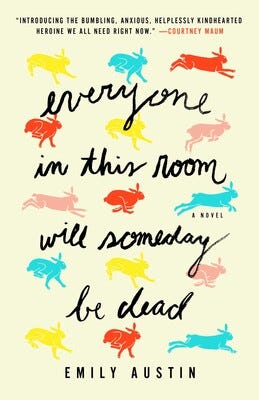
2. Everyone in This Room Will Someday Be Dead - Emily Austin
Contemporary Fiction, 256 pages
Gilda is in her late twenties struggling with anxiety and her ability to keep a job. Deciding she needs help, Gilda responds to an advertisement for therapy being held in a local Catholic church. Upon arriving, however, Gilda is greeted by the parish priest, who, thinking that she is responding to the recent job posting for a new receptionist, hires her on the spot. Unable to say no and in desperate need of a job, Gilda says yes despite the fact that she is an atheist and lesbian. The last receptionist, Gilda learns, died rather suddenly, and Gilda becomes obsessed with discovering how she died while also trying to avoid being discovered for the fraud she thinks she is.
I’ve heard this book compared to the (amazing) TV series Fleabag. I think this may be mostly an attempt by the book’s marketing team to sell copies, except for the commonalities of funny female protagonists that have complicated relationships with the Catholic Church. Indeed, I laughed out loud while reading this book (which is not common for me) and thought the writing was smart and engaging. What reviews of this book don’t seem to focus on are Gilda’s severe mental illnesses, manifested in a fear of death and dying so great that it sometimes paralyzes her ability to function as a normal adult. While the book is funny, I sometimes felt secondhand anxiety reading about Gilda’s struggles which speaks to the intensity Austin is able to produce with her writing.
Rating: 9/10
1. I Am I Am I Am - Maggie O’Farrell
Memoir, 304 pages
Using seventeen brushes with death, O’Farrell wrote a memoir for her life. When O’Farrell was a young child she became ill with a mysterious illness that left her paralyzed for a year and provided her first encounter with dying. At age 18, while working at a holiday resort, O’Farrell escaped a predatory man on a hike who later was arrested for strangling and murdering a woman a few days later. After giving birth to her first child, O’Farrell experienced extreme bleeding that made the doctors believe she was going to die. Although each incident is its own chapter, they are not in chronological order, slowly revealing O’Farrell’s life and providing context for her experiences. Do not think that these incidents make this a depressing book. It is the opposite. Each close encounter with death seems to give O’Farrell more perspective and appreciation for life, which becomes critical after her daughter is born with serious, life-threatening allergies and all of the survivalist lessons that she has learned must be used to keep her daughter alive. This is a wholly unique and singular book. I knew that O’Farrell was an exceptional writer from her novel Hamnet, but the creativity of this work combined with her writing skills and depth of perception make this one of the best books I have read all year.
Rating: 10/10
If you like what I’ve written or want to see more reviews, recommendations, and round-ups about a wide range of novels, histories, and more, consider subscribing now by entering your email. It’s free and it’s about books. What’s not to like?
Want to see last month’s round up? You can find that here.

